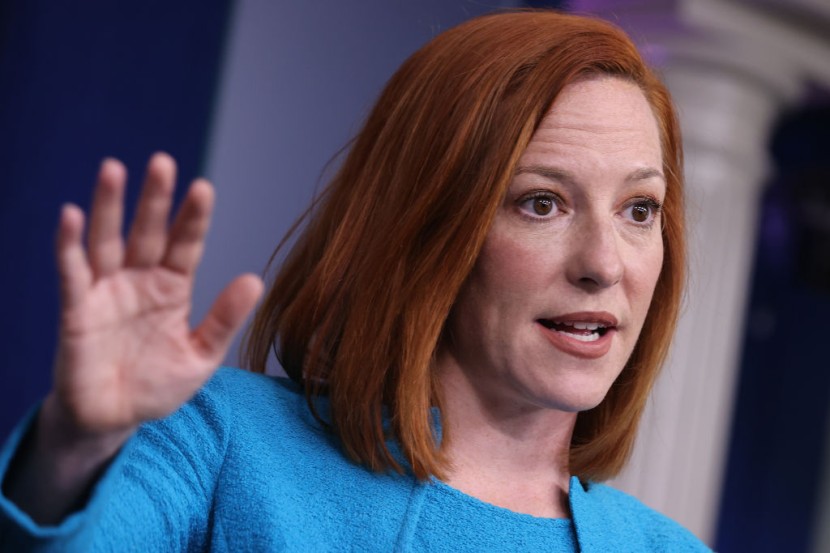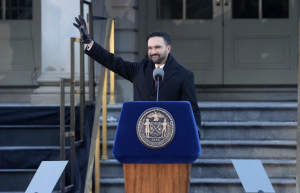
On Monday, the White House said officials could not conclude COVID-19 origins without an unbiased investigation and more data from China. At a press briefing on Monday, White House press secretary Jen Psaki assured reporters that officials would not act ahead of an actual international process. At this time, they don't have enough data and facts to draw any conclusions.
The White House urges independent probe on COVID-19 origin
Psaki was repeatedly questioned about a recent Wall Street Journal report that three researchers at the Wuhan Institute of Virology were so sick in November 2019 that they sought medical help. The report has sparked speculation about whether the novel coronavirus emerged from a lab leak rather than from an animal, which scientists had previously assumed was the most probable explanation.
The White House has "no way" of confirming or denying The Wall Street Journal's report, Psaki said, as per The Hill. She also refused to comment on the article's published source, which was a US intelligence report.
On Monday, Scott Gottlieb, a former commissioner of the Food and Drug Administration under former President Trump, said that the amount of circumstantial evidence pointing to the lab scenario was growing. He also stated that the United States would be unable to know whether the virus originated in a lab if that was the case. Anthony Fauci, the country's top infectious diseases expert who has questioned the lab theory, said earlier this month that he was not convinced the disease emerged naturally and that it should be investigated further.
Read Also: Anthony Fauci Seeks Further Probe As He Is Dubious of COVID-19 Having Developed Naturally
Researchers' illness fuels debate about COVID-19 origins
China is standing by a March report that said the COVID-19 was unlikely to have emerged at its Wuhan Institute of Virology. It is attempting to divert attention away from Fort Detrick, Maryland. Zhao Lijian, a Foreign Ministry spokesperson, referred reporters to a statement the lab released in March when asked about the Journal's story during Monday's briefing. According to him, the lab confirmed that staff and graduate students were not exposed to the virus before December 30, the date China announced cases to the WHO, and that a" 'zero infection' record" was kept among staff and students, as per Newsweek via MSN.
The pandemic brought back memories of the SARS epidemic in 2003 when China was chastised for its response, including a lack of transparency. The epidemic also raised questions about China's willingness, to be honest, this time, and although Chinese officials received high praise from the WHO for their response, many people have been skeptical of their claims.
China has firmly denied accusations that it was not transparent about the COVID-19. It has disputed allegations that a joint China-WHO mission's origin report was faulty due to scientific limitations. The paper, which was released in March, concluded that a lab leak was unlikely and that a zoonotic spillover was more probable.
Chinese officials have used the study to promote the idea that the lab was cleared as the COVID-19 origin site. Still, WHO Director-General Tedros Adhanom Ghebreyesus said that the mission did not find the source and that further research was needed to draw "more robust conclusions."
House GOP report finds dissent on COVID-19 origin 'suppressed'
Per a new study by House Republicans on the intelligence oversight panel, one of the US intelligence shortcomings linked to the COVID-19 global pandemic was suppressing opposing opinions on the virus's origin. "We conclude the intelligence community failed to provide timely products and analysis to policymakers. Furthermore, evidence indicates that shortcomings persisted in the aftermath of the pandemic," the minority report said in an annex to a study that connected China's Wuhan Institute of Virology (WIV) to the outbreak, The Washington Times reported.
The outside experts with potential conflicts were not named in the study. The study singled out the EcoHealth Alliance, a virus research group based in New York. Its leader, Peter Daszak, was one of the most vocal opponents of the theory that the virus did not come from an animal host but was mistakenly or intentionally leaked by Wuhan lab researchers.
The US government has given EcoHealth Alliance more than $100 million for coronavirus surveillance and analysis. Daszak also arranged a letter signed by a group of scientists published in the British Medical Journal The Lancet in the early days of the pandemic in 2020, condemning the lab leak hypothesis as a conspiracy.
Read Article: US Warns Against Travel to Japan as Olympics Loom; Doctors Claim the Games Must Be Canceled
@YouTube
© 2026 HNGN, All rights reserved. Do not reproduce without permission.








